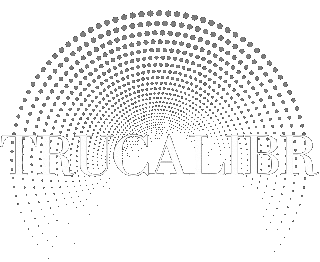In a world where financial stress and anxiety often plague our minds, incorporating mindfulness practices into our daily routines can offer a transformative path toward overcoming limiting beliefs about money. These beliefs, often ingrained from childhood or past experiences, can hinder our financial growth and success. However, by cultivating mindfulness, we can develop a deeper understanding of our relationship with money and break free from these constraints.
Understanding Limiting Beliefs About Money
Limiting beliefs about money are deeply rooted convictions that influence our thoughts, emotions, and behaviors related to finances. They can manifest in various forms, such as:
- Scarcity Mentality: Believing there is never enough money to go around, leading to fear and anxiety about finances.
- Self-Worth: Tying one’s self-worth to financial success or failure, leading to feelings of inadequacy or unworthiness.
- Fear of Failure: Avoiding financial risks due to a fear of failure or making mistakes.
- Lack of Abundance: Believing that wealth and abundance are reserved for others and not attainable for oneself.
The Role of Mindfulness in Overcoming Limiting Beliefs
Mindfulness involves being present in the moment, observing thoughts and feelings without judgment, and cultivating a sense of awareness and acceptance. When applied to our relationship with money, mindfulness can:
- Increase Awareness: Mindfulness practices such as meditation and reflection can help us become more aware of our thoughts, emotions, and behaviors surrounding money.
- Challenge Negative Beliefs: By observing our thoughts without judgment, we can identify and challenge limiting beliefs about money, replacing them with more empowering ones.
- Promote Gratitude: Mindfulness encourages gratitude for what we have, shifting our focus from scarcity to abundance and fostering a sense of contentment.
- Reduce Impulsive Behavior: By staying present and mindful, we can make more conscious and intentional financial decisions, rather than reacting impulsively out of fear or anxiety.

Incorporating Mindfulness Into Daily Routines
Integrating mindfulness into our daily routines doesn’t have to be complicated. Here are some simple practices to try:
- Morning Meditation: Start your day with a short meditation focused on gratitude and abundance.
- Financial Check-Ins: Set aside time each week to review your finances mindfully, observing any recurring patterns or emotions that arise.
- Mindful Spending: Before making a purchase, take a moment to pause and reflect on whether it aligns with your values and long-term goals.
- Gratitude Journaling: Keep a journal where you write down three things you’re grateful for each day, including aspects of your financial life.
FAQ (Frequently Asked Questions)
Q: Can mindfulness practices really change my financial situation?
A: While mindfulness alone may not directly change your financial situation, it can transform your mindset and relationship with money, leading to more empowered financial decisions and behaviors.
Q: How long does it take to see results from incorporating mindfulness into my daily routine?
A: Results vary for each individual, but even small daily practices can yield noticeable changes over time. Consistency and patience are key.
Q: Can mindfulness help with specific financial goals, such as saving for retirement or paying off debt?
A: Yes, mindfulness can support any financial goal by promoting conscious decision-making, reducing impulsive behavior, and fostering a sense of clarity and focus.
Conclusion
Incorporating mindfulness practices into our daily routines can be a powerful tool for overcoming limiting beliefs about money. By increasing awareness, challenging negative beliefs, and promoting intentional action, mindfulness empowers us to cultivate a healthier and more fulfilling relationship with our finances. As we embrace mindfulness, we open ourselves up to greater abundance, peace, and prosperity.
Sources:
- “The Power of Now” by Eckhart Tolle – Link
- “Mindful Money: Simple Practices for Reaching Your Financial Goals and Increasing Your Happiness Dividend” by Jonathan K. DeYoe – Link
- “The Mindful Millionaire: Overcome Scarcity, Experience True Prosperity, and Create the Life You Really Want” by Leisa Peterson – Link
Key Takeaways:
- Mindfulness helps increase awareness of our thoughts and behaviors surrounding money.
- By challenging limiting beliefs, mindfulness empowers us to make more conscious financial decisions.
- Incorporating simple mindfulness practices into our daily routines can lead to greater financial peace and abundance.







